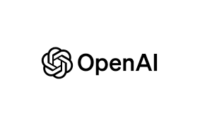OpenAI, the innovative developer behind ChatGPT, has taken a strategic step by appointing its inaugural employee in India, a move that underscores the company’s commitment to navigating the complex landscape of AI regulations in the world’s most populous nation. Amid India’s ongoing elections, which hold significant implications for the future of artificial intelligence governance, OpenAI has chosen Pragya Misra, a seasoned professional with extensive experience in public policy and partnerships, to lead its initiatives in India. At the age of 39, Misra, drawing from her extensive experience at Truecaller AB and Meta Platforms Inc., is scheduled to commence her new position at OpenAI by the end of this month.
This strategic hiring by OpenAI reflects the company’s proactive approach to advocating for regulations that support the responsible development and deployment of AI technologies. As governments worldwide grapple with the challenges posed by the rapid advancement of AI, OpenAI is positioning itself to engage with policymakers and stakeholders in India to shape regulatory frameworks that foster innovation while safeguarding societal interests.
OpenAI in India
India, with its vast population and rapidly growing economy, presents a significant market opportunity for global tech companies. However, navigating India’s regulatory landscape can pose challenges, as policymakers and regulators are keen on ensuring the protection of local interests amidst the influx of foreign technologies.
In the Indian market, OpenAI faces competition from industry giants like Alphabet Inc.’s Google, which is actively developing AI models tailored specifically for the Indian context. Google’s ambitious project aims to support over 100 local languages in both speech and text, potentially expanding internet accessibility and bridging digital divides across linguistic and cultural barriers.
During his visit to India last year, OpenAI CEO Sam Altman underscored the transformative potential of AI in improving government services, particularly in sectors like healthcare. Altman emphasized the need for regulatory frameworks that balance innovation with accountability, echoing concerns about the ethical implications and potential risks associated with AI technologies.
Altman’s call for increased regulations reflects a growing recognition within the tech industry of the need to address the societal impacts of AI. While acknowledging the current limitations of regulatory frameworks, Altman has stressed the importance of proactive measures to mitigate potential harms and ensure that AI technologies serve the broader interests of society.
By appointing Pragya Misra and signalling its commitment to engaging with Indian policymakers and stakeholders, OpenAI is poised to play a pivotal role in shaping the future of AI governance in India. As the company continues to expand its presence in key markets around the world, its proactive approach to regulatory engagement underscores its commitment to responsible AI development and deployment.
See also: Game Developers Rush To Unionize Amidst Looming AI Threat


















